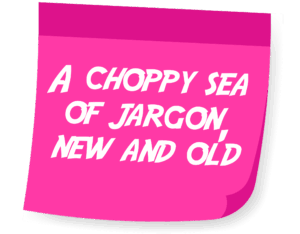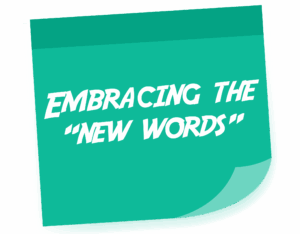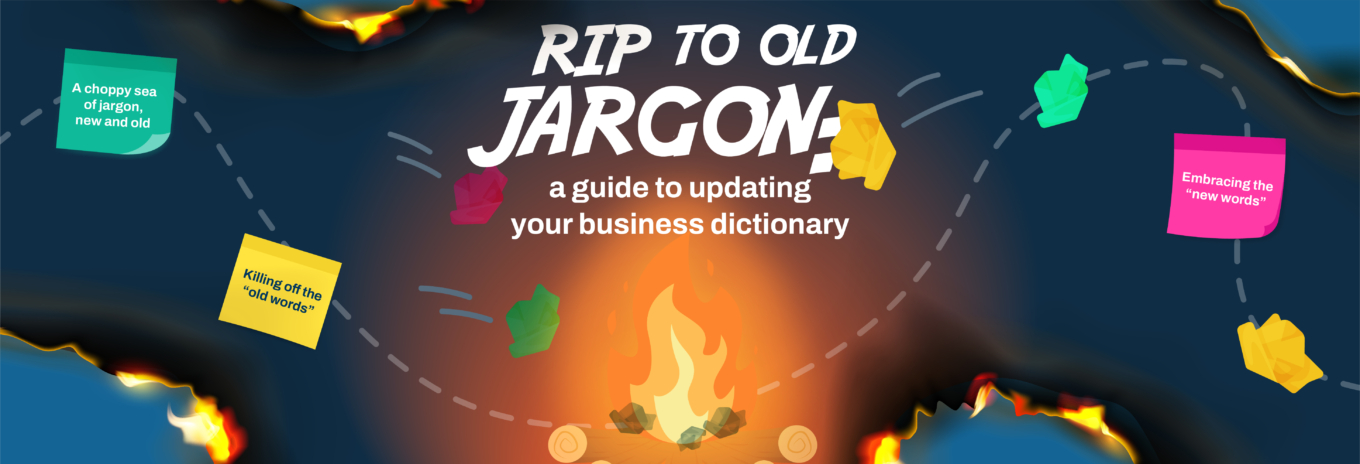Organisations are complex, and they’re always zigging or zagging. Change is a constant. Whilst that’s essential to keep things moving in the right direction, a lot can get left behind when you’re moving at speed.
Words and language that were once spoken hundreds of times a day are often left behind like bits of lost property – but sometimes, people can find it hard to let go.
That’s when you’ve got a problem.
Some of your organisation may reference old platforms, tools, apps, products and comms. We all love to think back with rose-tinted specs now and then, but that can leave new employees (and maybe your external audience) playing catch-up when they’re trying to figure out what the heck you’re talking about.
A choppy sea of jargon, new and old

How do you bring everything (and everyone) back into one message, with all your people on board?
Your employees need clarity. If they don’t have it, you can guarantee it’ll begin to bleed into how they speak to stakeholders and clients too.
That can become a big issue.
But, finding that clarity is easier than you might think. Some organisations have a dictionary or a bible for their language. It’s a single source of information your employees can refer to, helping them understand what everything means and does.
It’s valuable for new employees, and existing ones too. But before you write this mega-document, you’ve got something to do first…
Killing off the “old words”

These old words meant something to you once. They might even hold a special place in your heart. But now, they’re causing confusion and slowing down your employees.
They need to go. But that doesn’t mean it has to be an arduous process. Believe it or not… it could even be fun.
We had the idea of hosting a leaving party for old words, names, language, and old messaging for one of our clients. They were all to be written down and thrown into the bin, never to be used again.
Alternatively, as it’s getting closer to bonfire season, you could write down all your old jargon and throw it into the blaze!
The act of physically removing these words from existence, and at the same time announcing your new dictionary or guide, makes an occasion out of the switch – and it’ll engage all staff in the process.
Embracing the “new words”

When these documents don’t exist, you might hear phrases like ‘In my old job we had an X,Y or Z. Do we have something similar here?’
Imagine being a new starter at your business and not having a guide on how to speak about everything your job involves. Of course, you’ll pick it up – but how quickly? And how accurately? It’s a little like travelling abroad without a phrase book (or Google Translate.)
Creating your focal document can be done in a number of ways. But we like to think of it as a dictionary, with some FAQs and clear guidelines for language. You can create this in a wiki, or a Notion document (here’s a great example.)
Similar to giving a send-off to your old language, announcing your new language will encourage staff to embrace the new guidelines and set you up for a future where everyone is singing from the same hymn sheet.
Need a light?
If you need help banishing the old jargon into the flames and writing something new in its place, we can make it happen.
Talk to our team to see what we’ve created for previous clients, and how we can help you get your own.
















